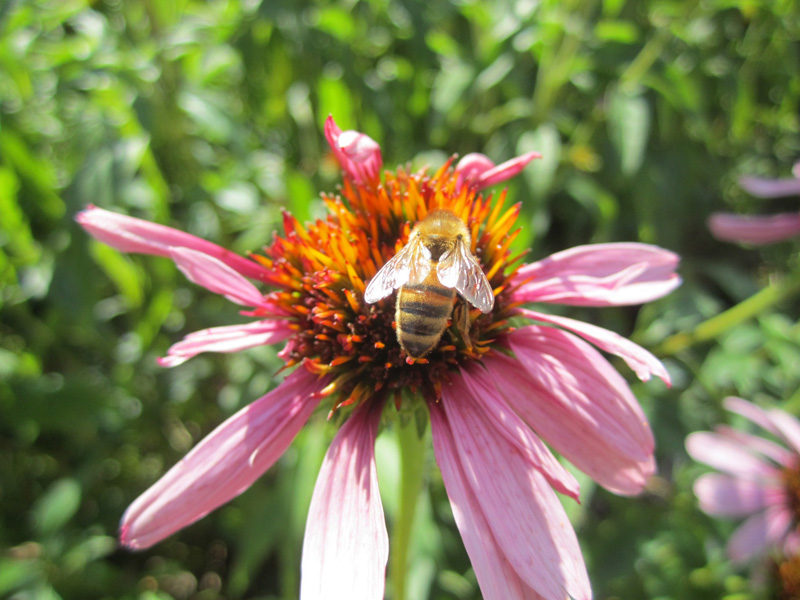Feeding the Pollinators
I recently received an exciting question on my Facebook page:
“Hi Mark! This year my husband and I are hoping to give our kids their own little gardens to take care of, and we would like them to be Bee friendly. Can you suggest what plants or flowers would be best to attract and feed honey bees? Thank you!”
This is incredible news! Everyone should be helping to support the pollinator community. Here are some tips on planting to feed our 6-legged friends.
- Honey Bees: these little pollinators are non-native (being brought over from Europe quite some time ago to assist in pollination). Even today hives are rented by farmers and transported around to the different crops during peak pollination time.
- Native Bees: We have hundreds of native bees in Canada (somewhere around 800 I believe). These bees are a bit more picky because they prefer to rustle about in native plants. The thing is, these bees developed with the native flowers that were here before European settlement.
- Other Pollinators: this includes moths, butterflies, syrphid flies, wasps, beetles, and, in some cases, birds and bats.
The best (and easiest) thing you can do is create a habitat that will satisfy all of these types of pollinators. This is done through the creation of a pollinator garden and the best plants you can use are the native ones. Believe it or not, honey bees aren’t the most important pollinators on the list. They are useful for farmers as they are easily transported but, truth be told, native bees do a better job.
What to Plant
Almost any native flower will do the trick but it would be in your best interest (and that of the insect community) to plant a variety of flowers together along with some native grasses. The meadow-style planting more closely resembles what happens naturally without human interference. Gardens designed in this fashion are less susceptible to diseases and will end up looking fantastic.
So, what’s the catch? Only one. It takes time. Native gardens don’t happen overnight. Or even in one season. Many native perennials require a few years to really establish and produce a flower but not all are like that (another great reason to mix and match).
Here are a few easy to grow perennials that will germinate in the spring (with no extra effort). Keep in mind that they will likely not flower this year. These can be planted now.
Blanketflower
Black-eyed Susan
Beebalm
Coreopsis
Dotted mint
Purple Prairie Clover
The following plants are great natives, and stunners in the garden, but will take a year to germinate. These are best planted in the fall.
Pasque flower (awesome for early spring pollinators)
Butterflyweed (monarch favourite)
Silphium family plants (super tall, little kids will love them)
Liatris (unique flowers, butterfly favourite)
Asters (one of the latest blooming, great for late fall pollinators)
The great thing is that you can find a number of native plants at the garden centres now. They are already growing, some already flowering, and ready to feed the neighbourhood pollinators.
Be wary, however! Be sure you are picking up natives and not hybrids. Hybrids, while they have their place in the garden, can pose problems for pollinators who don’t see the same as we do. Different colours can make flowers difficult to find and different shapes can make the flowers impossible to get into.
I hope this has helped some of you looking to put together a pollinator bed this year. Whatever you do, plan to feed pollinators year round with a variety of plants whose bloom times are spread out over the entire gardening season.
The pollinators will thank you!




